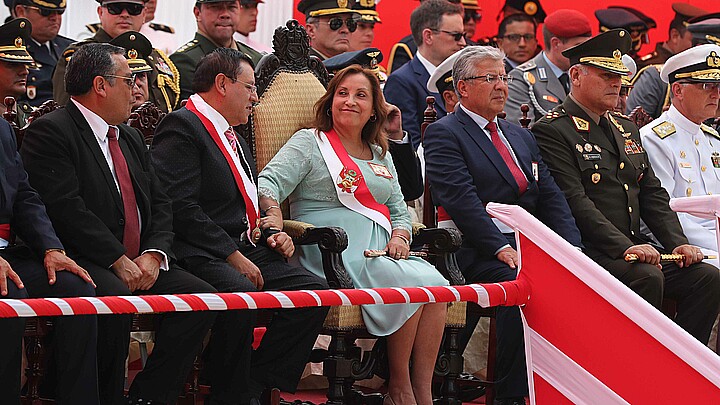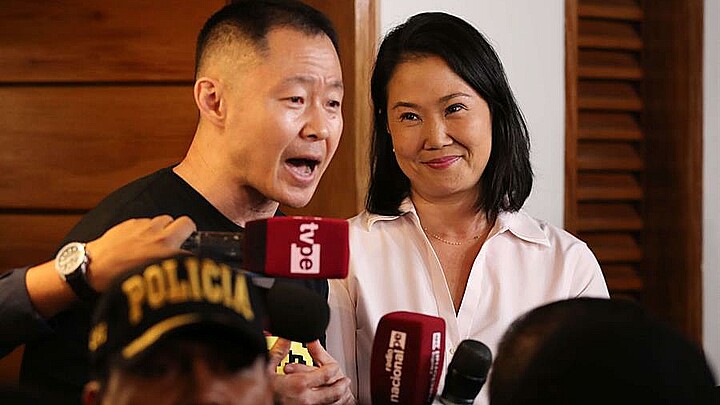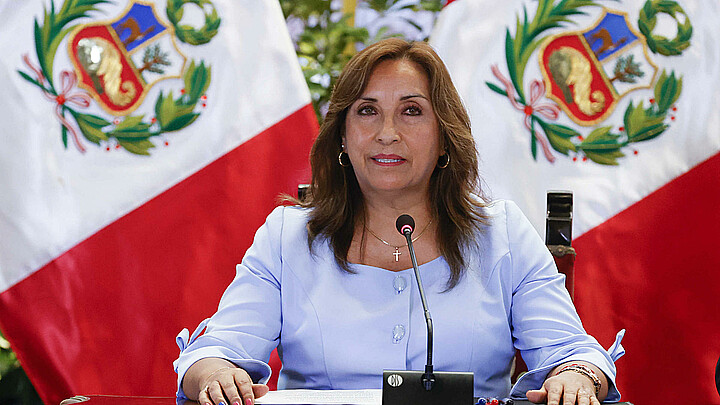Politics
Peru's left-wing president avoids impeachment as corruption scandals continue to surge
But Castillo and his administration remain vulnerable.
December 8, 2021 12:01pm
Updated: December 8, 2021 7:40pm
Peru’s left-wing President Pedro Castillo avoided impeachment on Tuesday after the Andean country’s Congress voted against a motion to move forward with the proceedings.
The legislation – introduced by opposition parties including Avanza País, Fuerza Popular and Renovación Popular – ultimately failed after lawmakers voted 76 against the motion and 46 in favor, falling 6 votes short of the 40 percent threshold required to proceed to an impeachment trial.
But Castillo and his administration remain vulnerable.
His approval ratings have been sent into a tailspin by allegations of corruption and widespread mining protests – factors which could provide the opposition with ammunition for another future impeachment attempt under the constitution’s “moral incapacity” clause.
Late last month, the presidential palace was raided as part of an investigation into allegations of corruption and influence peddling and his former chief of staff, Bruno Pacheco, subsequently resigned after prosecutors found $20,000 inside his office bathroom.
Castillo's own party, the socialist Peru Libre, reportedly considered supporting the impeachment motion, but rallied behind the president on Monday, calling the attempt a “right-wing coup.”
"The impeachment motion failed, fascism failed, the parliamentary blow to democracy failed," tweeted Peru Libre leader Vladimir Cerron, who served as Governor of Junin in 2019 until his term was suspended due to a prior criminal conviction.
But Adriana Tudela, an opposition congresswoman from Avanza Pais who led the initial charge against Castillo in October, believes there is good reason to remove the left-wing leader from office.
"In a democracy, the president isn't untouchable, he isn't an absolute monarch that answers to no one. The president has a legal and moral obligation to hold himself accountable to the people. Castillo has avoided doing this since his first day in office,” she told her congressional counterparts on Tuesday.
En Avanza País siempre defenderemos la democracia, la cual entendemos, a diferencia del oficialismo, no como un mero trámite electoral, sino como transparencia, rendición de cuentas, separación de poderes y cumplimiento de la ley. pic.twitter.com/Z3y22EqEWD
— Adriana Tudela Gutiérrez (@adrianatudelag) December 8, 2021
In Peru, legal precedent for removing presidents exists and a two-thirds congressional vote is enough for an impeachment to be successful.
Former President Martin Vizcarra was ousted just last year on corruption charges, and nearly every president elected since 1985 has been impeached, imprisoned or implicated in a criminal investigation.
“The latest development suggests that the situation could be rapidly moving from the current confrontation scenario into one of institutional rupture that leads to a premature departure” of Castillo, Barclays analysts Alejandro Arreaza and Juan Prada said in a research note last week.
Castillo – who was elected by razor-thin margins – remains widely unpopular and must grapple with a hostile congress where he does not enjoy majority support. A poll by Instituto de Estudios Peruanos for La Republica published Nov. 28 gave Castillo an approval rating of just 25%, Bloomberg reported.
In a speech to the nation last week, Castillo claimed he was being attacked by a “minority elite” for coming from a peasant background and demanding structural changes.
“The goal is to vacate the president without any basis and with absolute irresponsibility for the consequences these antidemocratic acts have for the population,” he noted.
Before the vote on Monday, hundreds of protestors gathered outside the congress in Lima's historical center.
One protester summed up the popular discontent saying that she supported impeachment because Castillo is "destroying Peru, destroying our economy and the freedom of all Peruvians."










